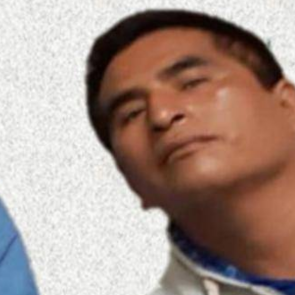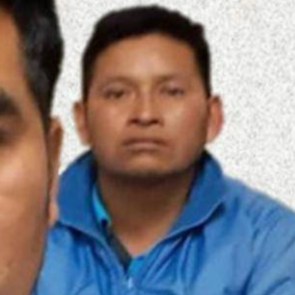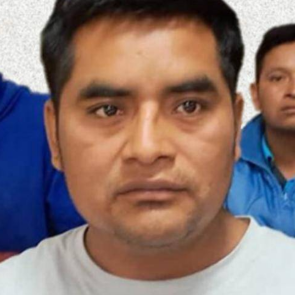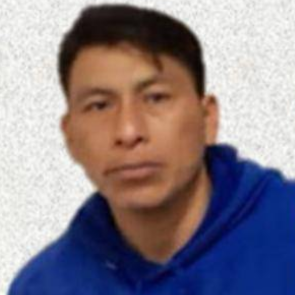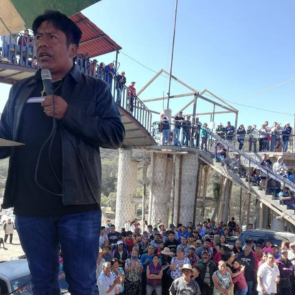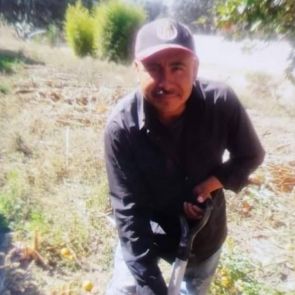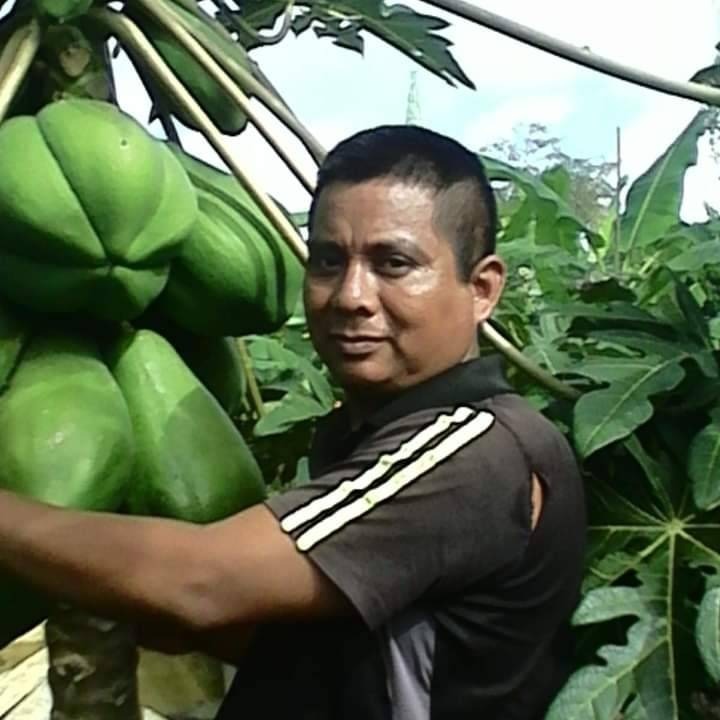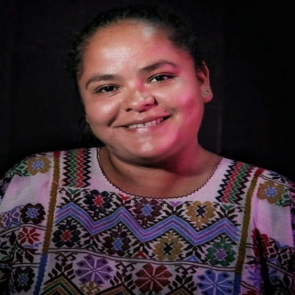Organizations alert on arbitrary detention, long pretrial detention and imposition of long sentences against criminalized indigenous human rights defenders
The signing organizations express our deep concern over the criminalization context facing indigenous leaders who defend human rights in Mexico. They face arbitrary detentions, long pretrial detentions and unfair, excessive and disproportionate prison terms, affecting their human rights work and their personal, family and community life. The cases of David Hernández Salazar and Pablo López Alavez in the State of Oaxaca, the case of Kenia Hernández Montalván and Tomás Martínez Mandujano in the State of Mexico, as well as the case of Saúl Rosales Meléndez in the State of Tlaxcala, and the cases of Versaín Velasco García and the maya-tseltal defenders of San Juan Cancuc, Agustín Pérez Velasco, Martín Pérez Domínguez, Juan Velasco Aguilar and Agustín Pérez Domínguez in Chiapas, illustrate this concerning pattern of persecution and criminalization.
In February 2024, Binniza indigenous defender David Hernández Salazar, member of the Assembly of Indigenous Peoples of the Isthmus in Defence of Land and Territory (APIIDTT) and representative of the indigenous community of Puente Madera in Oaxaca, was sentenced to 46 years and 6 months imprisonment for the crimes of damages caused by fire and malicious injury. This accusation and sentence were done as a reprisal for his peaceful opposition to the installation of the “Polo de Desarrollo” in San Blas on their common lands El Pitayal as part of the Inter-Oceanic Corridor of the Isthmus of Tehuantepec (CIIT) project. In February 2024, the legal defence filed an appeal against the sentence, and in May he was acquitted by the Superior Court of Justice of the State of Oaxaca. The criminalization and judicial campaign against him started in 2021, and during that period he faced two federal lawsuits and a state one, all of which have been closed, with him finally acquitted and with no charges against him.
In 2010, Zapoteco indigenous leader Pablo López Alavez was arbitrarily detained. 14 years later, his case is still under the investigation stage and without a sentence. The Zapoteco leader faces fabricated charges as a reprisal for his community leadership position and for defending the water and environment of the San Isidro Aloápam community in Oaxaca. Pablo López remains wrongfully deprived of his liberty even though his criminalization and serious human rights violations against him have been acknowledged at an international level with calls for his liberation as well as opinions such as the Opinion Number 23/2017 by the United Nations Working Group on Arbitrary Detention.
Since 2022, the lawyer and Amuzga indigenous woman human rights defender Kenia Hernández Montalván has been serving a sentence of 21 years and 9 months in prison after being sentenced twice in less than a month to 10 years imprisonment for the fabricated crime of “robbery with violence”. Kenia was the coordinator of the Zapata Vive Libertarian Collective, where she promoted land rights and indigenous peoples collective rights threaten by development projects lead by the Mexican State. To date, the woman human rights defender is facing 9 charges against her as a reprisal for her work of pacific resistance and defence. In May 2022, the United Nations Special Rapporteur on Human Rights Defenders, the Working Group on Arbitrary Detention and the Special Rapporteur on the rights of Indigenous Peoples wrote to Mexican authorities expressing their concern regarding her case. After the response from Mexican authorities, the Special Rapporteur on Human Rights Defenders called for Kenia Hernández Montalván to be released immediately.
In January 2024, Otomí indigenous leader, builder and human rights defender Tomás Martínez Mandujano from the Llano Grande Azcapotzaltongo community, State of Mexico, was sentenced to 43 years and 9 months in prison for a murder he did not commit. The sentence was imposed as a reprisal for his work defending the community lands, of which they have an ancestral ownership, from private interests of property companies that aim to exploit it for its easy access to water resources.
In March 2024, the Nahua indigenous leader and community President Saúl Rosales Meléndez from the San Pedro Tlalcuapan community, State of Tlaxcala, was sentenced to 20 years imprisonment for a murder he did not commit. His sentence is the result of the lack of capacity of the authorities to investigate lynching cases that are getting more frequent in the region, which has been used against Saúl Rosales Meléndez for leading the defence of the Matlalcueyetl mountain’s forest, also known as La Malinche, in face of the environmental damage caused by extractive activities without consultation with the community. The reasoning behind the sentence is based on negative stereotypes about the role that Saúl Rosales Meléndez had as community President, attributing to him the uses and customs that he allegedly allowed during the commission of the crime. The human rights defender is currently criminalized and remains detained since 14 July 2022.
In January 2024, human rights and land defender of the Maya Tzotzil people, Versaín Velasco García, was sentenced to 58 years in prison after being unjustly accused of homicide. Versaín Velasco García has suffered from harassment and criminalization for being an active voice in the defence of human rights in the Nueva Palestina community, Chiapas, where he has denounced numerous abuses of authority and violent events, including sexual abuse by the security forces, public denunciations related to organised crime and human trafficking, and murders. The human rights defender has been detained since January 2022. The National Commission on Human Rights released on 31 August 2023 the RECOMENDATION NO. 157/2023 regarding the human rights violations against him, his wife, two children and sister.
The community defenders of the Maya Tseltal people of San Juan Cancuc Agustín Pérez Velasco, Martín Pérez Domínguez, Juan Velasco Aguilar and Agustín Pérez Domínguez were sentenced to 25 years imprisonment for a murder they did not commit. They were detained in 2022 by State authorities, including members of the Mexican army and the National Guard. The State has intimidated them from testifying in their defence. They were initially sentenced in May 2023, and after a complex process of appeals the trial was reinstated, but they were again sentenced, causing a situation of emotional and financial exhaustion. The sentence was issued as a reprisal for their work of defence of the rights to autonomy and self-determination of the maya tseltal people, highlighting the opposition of the people of Cancuc to the mega-highway project San Cristóbal – Palenque.
The criminalization, arbitrary detention, long pretrial detention and imposition of excessive prison terms over fabricated and baseless charges against human rights defenders who are part of indigenous peoples in Mexico have become an alarming trend showing a pattern of racism and disproportionate violence by the Mexican State. This pattern of arbitrary detentions against human rights defenders, mostly indigenous people, has been identified at an international level. These violations aim to demobilize the movement for collective rights of indigenous peoples, impacting not only the individual and family lives of the criminalized human rights defenders, but also the realization of their collective rights as indigenous communities.
The arbitrary detention, long pretrial detention and imposition of prison terms against these defenders are so severe that they could qualify as "informal life imprisonment". This does not satisfy the principle of proportionality and may even be equivalent to a cruel, inhuman and degrading treatment, as it deprives the detained person of the possibility of rehabilitation and reintegration into society and their community, which is the aim of the imposition of prison terms under criminal law.
In addition, the fact that the judicial system does not consider the effects of the imposition of imprisonment sentences on indigenous peoples is concerning. The Inter-American Court of Human Rights has affirmed that “the separation of indigenous persons from their community and territory, basic components of their cultural identity, may lead to deep suffering that goes beyond that inherent in confinement in prison and may have a negative impact on members of the indigenous community”.
The above-mentioned is in line with the United Nations Subcommittee on Prevention of Torture and Other Cruel, Inhuman or Degrading Treatment or Punishment, which affirms that “community ties determine the structure of the individual and collective identity of community members, and imprisonment directly undermines these ties”, to the point that “for many indigenous persons, imprisonment constitutes cruel, inhuman and degrading treatment and even a form of torture”.
In light of the above, the signing organizations reject the improper use of criminal law aimed at restricting the defence work of human rights defenders, especially those who belong to and defend the rights of indigenous peoples, as this affects their right to a cultural identity and its connection with the community. In this way, it not only limits the right of indigenous peoples to defend their interests and collective rights, but also violates their identity and unity by displacing their members to penitentiary centres to serve disproportionate and unjustifiable sentences.
The signing organizations urge Mexican authorities to comply with the international human rights standards for the protection of human rights defenders, as well as the standards related to indigenous peoples, in order to avoid the improper use of criminal law to restrict the work of those who defend the rights of their communities and people. It is also important to apply a differentiated intercultural approach relevant in these cases. Indigenous leaders and human rights defenders David Hernández Salazar, Pablo López Alavez, Kenia Hernández Montalván, Tomás Martínez Mandujano, Saúl Rosales Meléndez, Versaín Velasco García, Agustín Pérez Velasco, Martín Pérez Domínguez, Juan Velasco Aguilar and Agustín Pérez Domínguez must be immediately released, the baseless charges against them must be dropped and they must received the relevant compensation for the damages caused against them.
Signatories:
• Asamblea de Pueblos Indígenas del Istmo en Defensa de la Tierra y el Territorio (APIIDTT)
• Fray Bartolomé de las Casas Human Rights Center (Frayba)
• Centro de Derechos Humanos Zeferino Ladrillero
• Consorcio para el Diálogo Parlamentario y la Equidad Oaxaca (Consorcio Oaxaca)
• Front Line Defenders
• Red Nacional de Organismos Civiles de Derechos Humanos “Todos los Derechos para Todas, Todos y Todes” (Red TDT)
• Colectivo de Saneamiento y Restauración de la Malintzi Tlalcuapan
